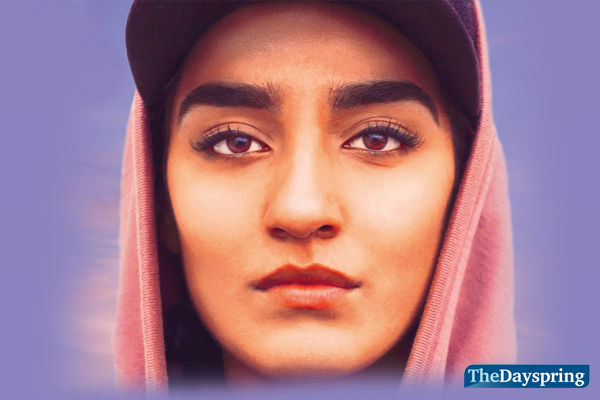By: Atle Hetland
Iram Haq (42) is a Norwegian film director and actress. She is known for films such as Old Faithful, Little Miss and her first feature film I Am Yours, screened at the Toronto International Film Festival in 2013. Her latest feature film, with documentary elements, “What Will People Say” (2017) takes up issues conflicting cultural and moral issues in the immigrant community in Oslo, Norway, with large Muslim communities, indeed well-established Pakistani communities. Since Pakistani immigrants began communing to Norway in the late 1960s, they belong to the veterans there among immigrants from outside Europe. Many have done well in life through hard work and opportunities , in politics and other fields, including Hadia Tajik (35) who has been a Minister of Culture and is now deputy chair of Norway’s largest political party, the Labour Party, and Abid Raja (43), who is a prominent Member of Parliament for the Liberal Party. Earlier, Pakistani-Norwegian Akhtar Chaudhry (Socialist Party) was Deputy Speaker of Parliament. Some have made it as anchors on TV and radio while others have done well in business and indeed in education. It is said that ten percent of all medical students are of Pakistani origin and most of them are women since they score highest at secondary school exams and manage to go through the needles head into medicine in Norway.
“What Will People Say” was shown at the Norwegian Ambassador’s residence in Islamabad recently, as a film included under the United Nations programme named “Human Rights through Cinematography”, marking the 70th anniversary of the International Human Rights Declaration.
“I am glad that the film did not reach up to be nominated for the American Oscar, which it was shortlisted for, but now a Danish film has won the race”, says Tahira Abdullah. “I felt that the film was a bit superficial and not balanced when discussing family issues and young people’s relationships in different cultures, especially among Muslims in Norway.”
Social anthropologist Dr. Torunn Arntsen Sajjad says that she did not think that the film quite deserved the tremendous positive attention it has received in Norway, although it put issues on the agenda and opened for debate about things that would otherwise not be talked about openly. “Even if films or books may have shortcomings, they may indeed wake us up to discuss issues”, says economist and gender specialist Dr. Memoona Rauf.
“What Will People Say” is a film about a young woman of Pakistani parents living in Oslo, her hometown. She is drawn between the modern Western way of life, where dating and being intimate with a boyfriend even before marriage is seen as alright. At the same time, the lead character in the film, a young woman named Nisha (played by Maria Mozhdah) dresses conservatively and behaves as is expected of her when she is with her family and community. The story then focuses on what happens when the parents discover the double life the daughter lives, having a boyfriend and behaving like the majority group of Norwegians behave. She is send home to Pakistan to learn properly the values of her parents and the Muslim religion, which is also the young woman’s religion.
“The topic is indeed important, and many immigrants, and also people in the cities in Pakistan, may experience similar cultural conflicts”, says a Pakistani couple who grew up in UK, but has now returned to Islamabad. “There will be many conflicting expectations and norms.” Dr. Arntsen Sajjad says that we must not make moral traditions more different than they actually are. She says that also ethnic Norwegian young women must be careful about their reputation and how they associate with the opposite sex. They can otherwise easily be seen as loose and be termed bad persons. “Unfortunately, the film fits well into the Western understanding of the issues the film takes up in the Muslim family in Oslo. But sometimes makes the issues and persons into stereotypes. Reality is much more nuanced. We should also try to understand the values and views of the parents. Towards the end of the film, it touches upon how difficult the issue had been for the father of the girl, not only for the girl.”
“Luckily, most young people, everywhere in the world, want to do what is right and acceptable in their community. Young people have to find out about the world they live in and they may sometimes want to do things differently from what the parents did when they were young. Besides, parents may not always be right either. There are many things in traditions and cultures that can be improved, in Pakistan and in Norway. Domestic violence is mainly carried out by grown-ups, not by youth”, says a researcher in a comment, taking a broader perspective to the issues that Iram Haq’s film has introduced.
